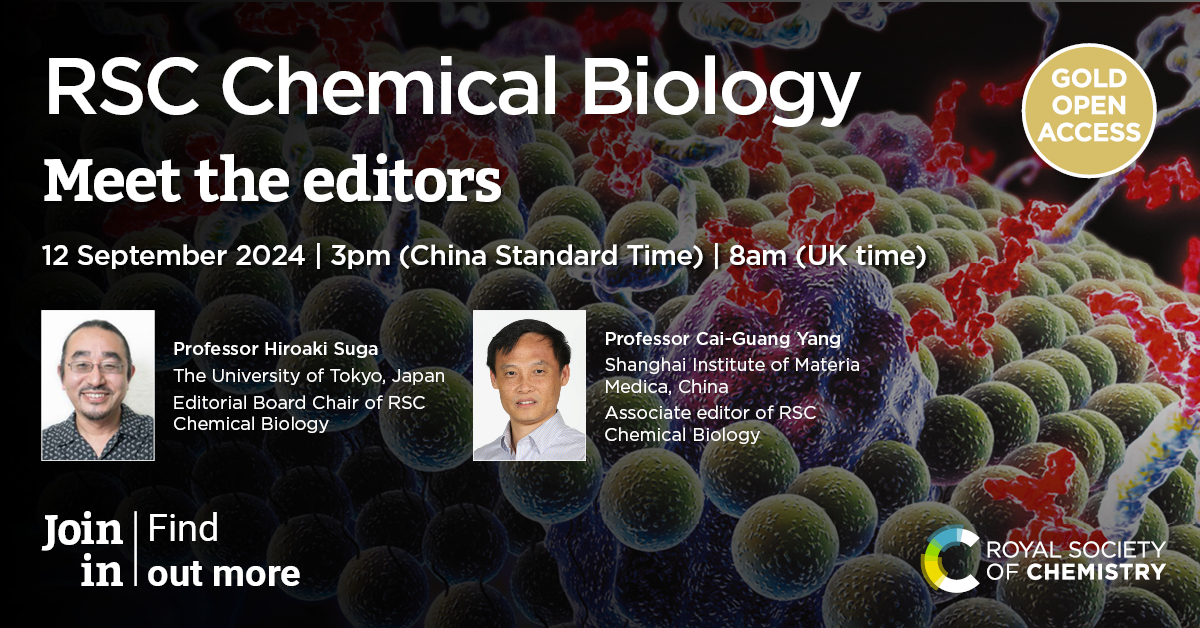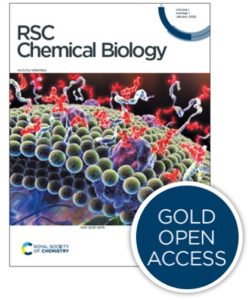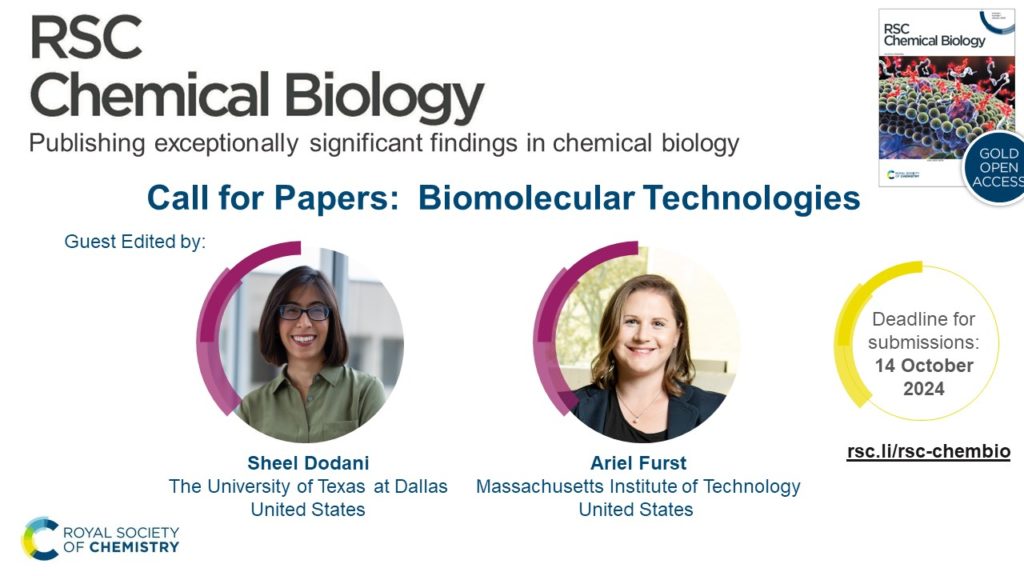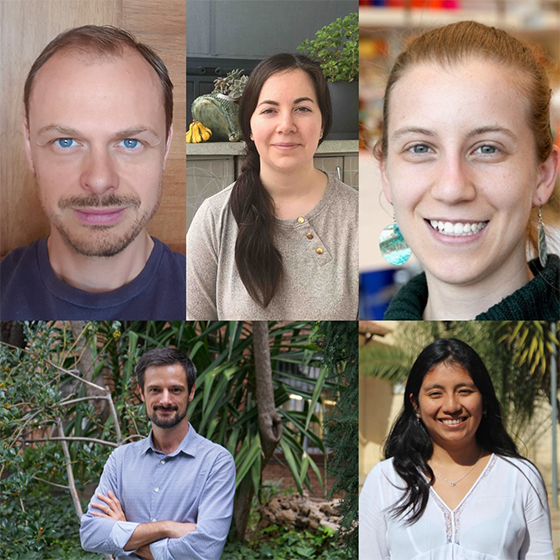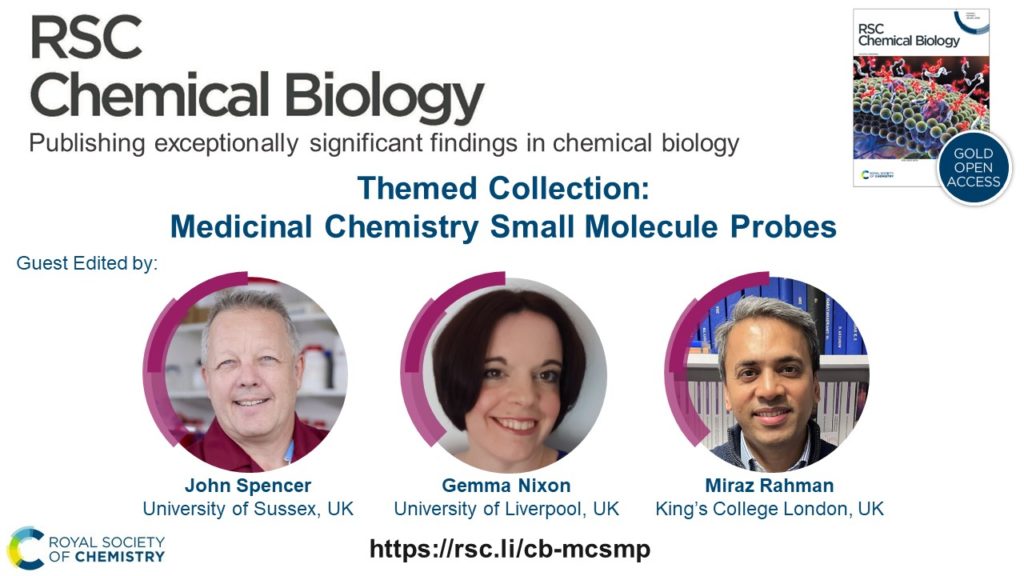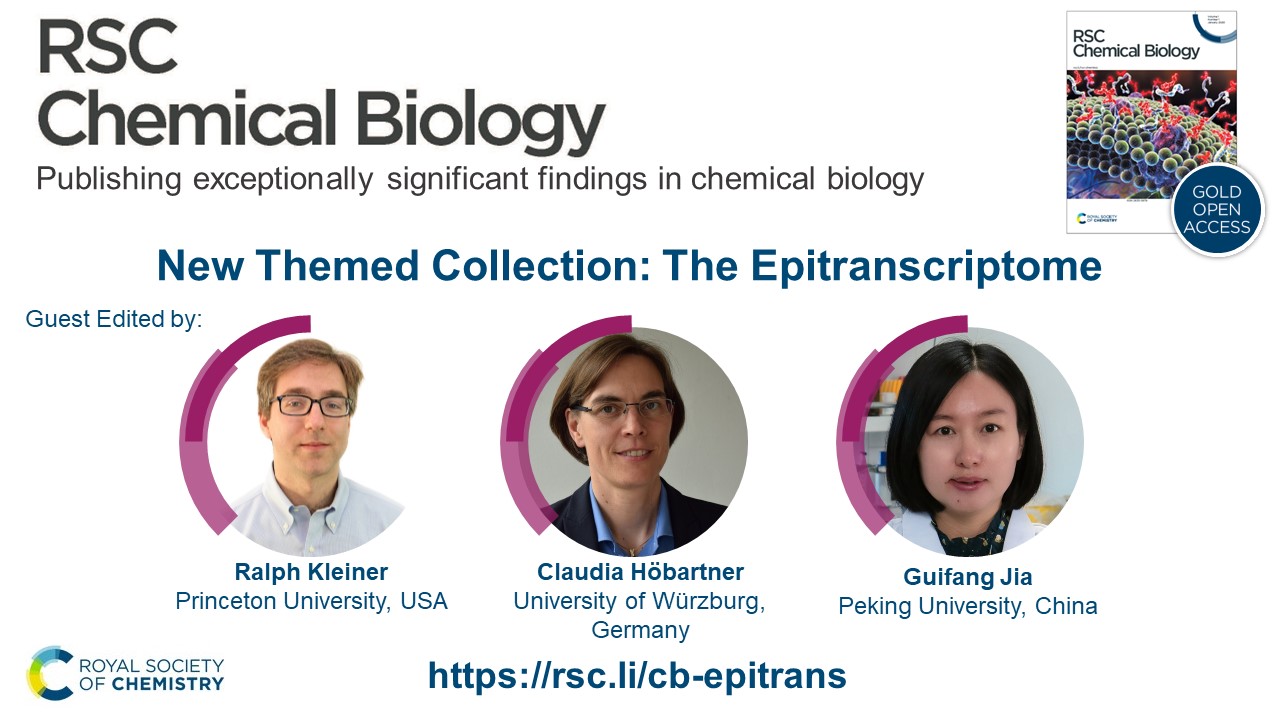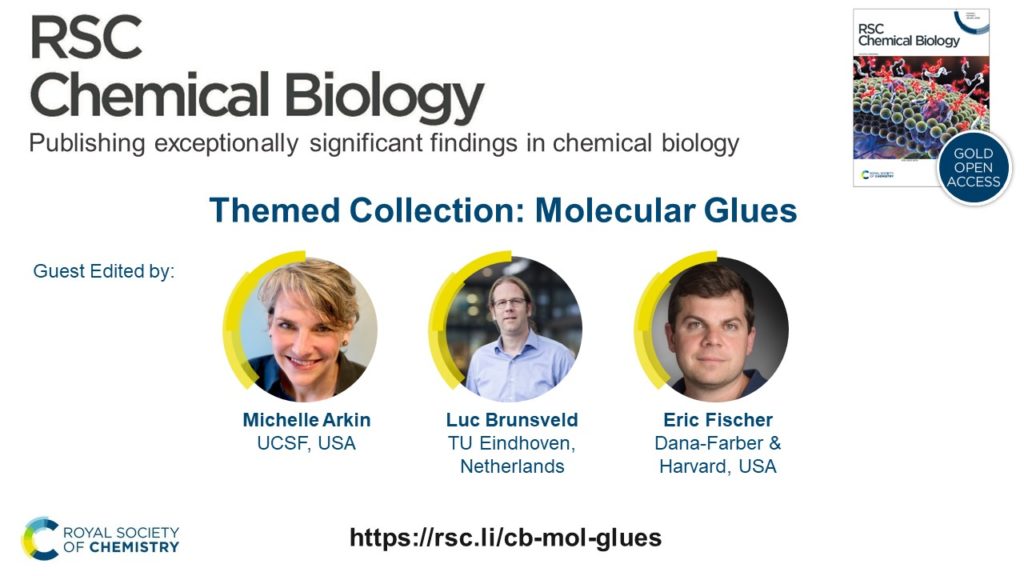|
We invite you to join our Meet the Editor webinar: RSC Chemical Biology! We are delighted host this “Meet the Editor” webinar with Editor-in-Chief, Professor Hiroaki Suga, and Professor Caiguang Yang, Associate Editor of RSC Chemical Biology, sharing their latest research work and recommending a few papers worth of your attention!
|
Join us on Thursday, 12 September 2024 at:
- 15:00 – 16:15 China Standard Time
- 8:00 – 9:30 Greenwich Mean Time
Click here to
register for FREE
|
Agenda: • 15:00 -15:10 CST / 8:00 – 8:10 GMT
Opening & journal introduction• 15:10 – 15:40 CST / 8:10 – 8:40 GMT Invited talk: Pseudonatural Peptides for Therapeutics and Some Examples of Impactful Research Articles published in RSC Chemical Biology
Speaker: Professor Hiroaki Suga (The University of Tokyo, Japan), Editorial Board Chair of RSC Chemical Biology• 15:40 – 16:10 CST / 8:40 – 9:10 GMT Invited talk: Chemical genetics in drug discovery Speaker: Professor Cai-Guang Yang (Shanghai Institute of Materia Medica, China), Associate editor of RSC Chemical Biology• 16:10 – 16:15 CST / 9:10 – 9:15 GMT Summary & closing |
| We hope that you’ll join us for this webinar. |
| RSC Chemical Biology is now indexed in the Directory of Open Access Journals (DOAJ), PubMed Central, Scopus and Web of Science: Emerging Sources Citation Index. Find out more about the journal and submit your work at rsc.li/rsc-chembio
Royal Society of Chemistry
|


